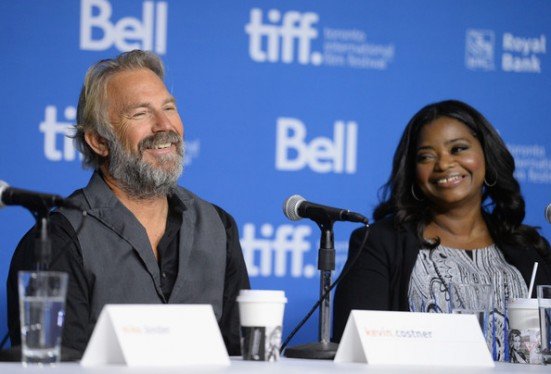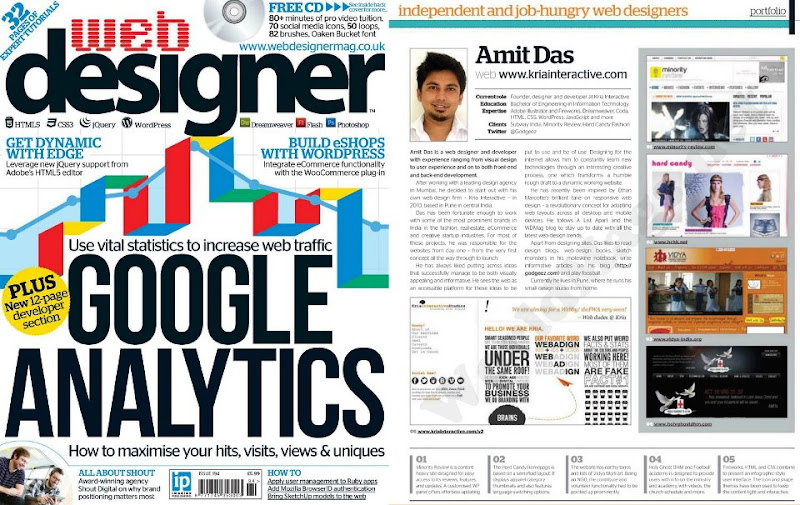
<Swati Sharan>
Black and White is a film starring Kevin Costner, Octavia Spencer, Anthony Mackie, Jillian Estell and Mpho Koaho. The film is about Elliot (Costner) fighting Rowena (Spencer) for the custody of their common, bi-racial grand-daughter (Estell) years after the death of Elliot’s daughter. The battle is between the grandparents because the father of the child has issues with drug addiction. The film is directed by Mike Binder.
Watch the video of the press conference and our questions to the panel:
Or read what they said here:
To display the challenges being faced by African Americans when they would be accused of wrongful action, Martin Luther King quoted Victor Hugo from Les Miserables. “When a crime is committed, the guilty one is not he who committed the crime but he who caused the darkness.” Later on, he said how he dreamed of the day when people were judged by the content of their character and not the colour of their skin. So given that there has been so much history or presence of discrimination, it’s so hard for some people to break out of that. I can see some of the characters are by-products of that. I’m just wondering, what do you guys think of this Victor Hugo quote and if you agree with it, how can individuals break out of this cycle?
Octavia Spencer: Well, I think Mike does a beautiful job exemplifying that very quote because if he had done the typical, ‘Oh the white man saves the day. The black man is the guilty party’, it wouldn’t have had those triumphant moments. Where you want to clap for the Elliot character who is battling his own demons.
I felt that Mike did a wonderful job in telling the story even-handedly. At the end of the day, the darkness did not win out. The family came together. There was a lot of beauty and a lot of wisdom in how he chose to tell that story with a lot of redemption. I loved that it wasn’t the cookie cutter factory type story. I felt like he really did a beautiful job in showing real human behaviour. He didn’t shy away from the fact that it’s uncomfortable in my opinion.
Kevin Costner: You know, I thought Anthony Mackie, people talking about the speech I have in the courtroom and feeling the level of being affected by that. And I certainly was when I read it. But I think the character that Anthony played, if you watch really closely, there’s two things going on. One is there’s the lawyer who wants to win because that’s what you want to do when you have a client. But Anthony’s character, you’re (looking in Anthony Mackie’s direction) so good in that conference room. He broke it down. It wasn’t black or white. It was just about being a man and the failings of Reggie. And the fact that Anthony took that speech on, I thought he really framed the movie. You know, this idea of how you need to behave as a man and you’ve fallen down as a father. I thought it was powerful. I don’t want that to be overlooked at how strong that speech is because that levelled the playing field. It really levelled it. (Smiling at Anthony) You really levelled Reggie. It was very beautiful. I watched it last night with a lot of attention and it was really important. That was the higher wire act Mike has done with the subject.
Mike Binder (Director): I agree with that. I think Anthony brings a gravitas to that character. But he just also brings a low level humanity because to me, that is at the bone marrow of what this is. This is about what is that connection we have as parents. This isn’t about black and white. This is about what do you feel when the minute your child is born. Are you instantly connected for the rest of your life? That child is your responsibility and being a parent; I have two children. When my daughter was born, my life was forever changed. The headline on my life is that I am their father. And a lot of people don’t get that. A lot of guys don’t get that: white or black. They just don’t get that and that line when he says that, to me, is the bone marrow of this movie… So I really agree with that (pointing in Kevin’s direction). I really feel like when we got on the set of this movie, we knew we were making a movie about race. But that wasn’t what we were talking about. That wasn’t everything. We were talking about a movie about family.

Arranged marriages, as some of you may be aware, are arranged with a lot of parental input. The theory behind arranged marriages is that you go for people of known backgrounds and people will get an idea of the characters and habits of the two people getting married. So adjustment is a big part of how arranged marriages work. Now in the independent marriages in America, parental input may not have as great a role as we’re seeing in some of this. And I wonder how much of a role adjustment plays in two people coming together. Sometimes when you go for somebody on your own, you might get blinded and so, you may make the wrong choices. You may do the right things. You may do the wrong things. It can go either way. But I am just wondering now given how your characters are dealing with the aftermath of everything, (assuming people have independent marriages), do you feel that there should be more parental input than what there is?
Octavia Spencer and Anthony Mackie: No not at all.
Anthony Mackie: No matter what, your marriage is arranged. No matter where you are, there’s an arrangement. No matter who your parents are, if God himself came down and said, take her, you’re going to have a conversation with that arrangement. (Acting voice) ‘Ok, we’re going to live in this house. Don’t do this. I won’t do that. All right? Let’s do it.’ I’ve never been married.
Mpho Koaho: That’s a really good question. Wow. That’s really deep actually. My mother gave an African gentleman my phone number who is a friend of a young lady who she helped. So there’s some kind of an arrangement in that. And also, I think you speak to the decision-making of said parents. This guy ended up being like the worst guy. But at the start of it, my mother felt like her decision-making and her ability to see the good in this person because he was African and we’re all connected because of that. That’s all very relevant. I see that. She ended up making the wrong decision in my opinion. So it totally happens. (Looking towards his co-stars) But at the same time, wouldn’t you trust your parent’s decision? Not necessarily to make the choice for you but mom, do you like this person or not?
Anthony: No, no.
Mpho: You see what I am trying to say?
Anthony: My mama called me and said, “I met so and so”. (And then in an acting voice as himself) Good. (And then he pretends he’s pressing the delete button on an imaginary cell phone). Delete.
Mpho: My mom’s like ‘this guy is so cool.’ But he ended up being the worst guy. So it’s like I don’t totally trust my mother’s decision making. That’s a great question.
Octavia: I get it. But I think there’s also the only way to grow as a human being is to make mistakes and to learn from those mistakes and if you never get your heart broken, how can you truly know when you’re madly in love? I’m sorry. I just can’t have other people making decisions for me. That’s just me. That’s me.
Mpho: But you still have to be with this person. I’m going to see mom maybe at Christmas or Thanksgiving. I feel like most parents or in-laws don’t get along anyways. You know, it doesn’t work.
PS: At the end of the conference when the talent left the stage, Mpho came back to thank me because he really liked the question. Such a thing almost never happens at press conferences so it was very gratifying that he did.



0
comments